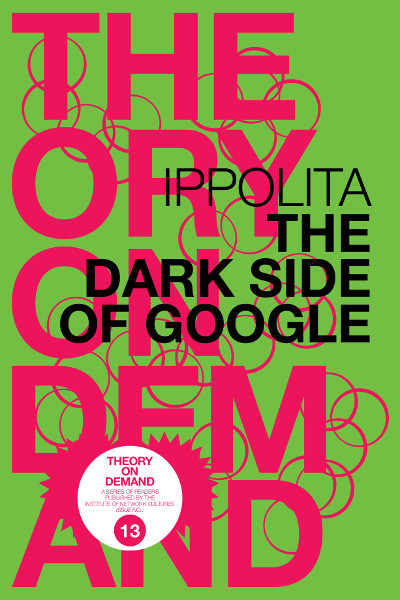Computational Culture, a Journal of Software Studies, Issue Three (2013)
Filed under journal | Tags: · algorithm, bureaucracy, code, computing, data, database, software, software studies
This issue of the journal treats “the database [as] one of the crucial social technologies of our time. As such, it is in urgent need of technically informed critical analysis, the kind of analysis that has tended to be demoted in favour, for instance, of the more semiotically amenable exploration of the more obviously cultural widgets and interfaces of the front end of Web 2.0 technologies. Yet the history of the development of the database casts an interesting light on otherwise frequently algorithm-centric eulogies to the development of computing.” (from the Editorial)
With contributions by Michael Castelle, Evelyn Ruppert, Anne Helmond, Taina Bucher; reviews by Thor Magnusson, Harry Halpin, Håkan Råberg, Alan F. Blackwell, and Lone Koefoed Hansen.
Editorial group: Matthew Fuller, Andrew Goffey, Olga Goriunova, Graham Harwood, Adrian Mackenzie
Published in November 2013
Open access
ISSN 2047-2390
Ippolita: The Dark Side of Google (2007–) [IT, FR, ES, EN]
Filed under book | Tags: · algorithm, capitalism, database, free software, google, open source, search, software, technology

In The Dark Side of Google Italian writers’ collective Ippolita provides a thorough, fresh analysis of what is behind the universe of Google and the metadata industry. In recent years Google has established itself as a major point of Internet access. We have progressively adapted to its sober, reassuring interface and its advertisements (discretely off to the side, yet always present). We have adopted its services and the habit of using it to the degree that ‘googling’ has become a form of behavior: ‘If you don’t know what it is, Google it!’
Google shows mastery in taking advantage of our need for simplicity. We sit in front of a colossus, an incredibly pervasive system of managing knowledge, comprising aggressive marketing and shrewd management of its own image, and the propagation of highly configurable interfaces that are still implacably recognizable. What is more, Google co-opts methods for developing Free Software, the use of futuristic systems for gathering and storing data. What lies behind the most consulted search engine in the world?
Italian edition
Publisher Feltrinelli, Milan, 2007
English edition
Translated by Patrice Riemens
Publisher Institute of Network Cultures, Amsterdam, 2013
Theory on Demand series, Vol. 13
Creative Commons Attribution Noncommercial No Derivative Works 3.0 Netherlands License
ISBN 9789081857567
110 pages
Luci e ombre di Google (Italian, 2007, draft)
La face cachée de Google (French, trans. Maxime Rovère, 2010, draft)
El lado oscuro de Google (Castilian, trans. Pino and Maria, 2010)
The Dark Side of Google (English, trans. Patrice Riemens, 2013)
Stephen Wright (ed.): Dataesthetics: How to Do Things with Data (2006) [English/Croatian]
Filed under book | Tags: · art, biopolitics, cartography, data visualisation, database

Data has become the most pervasive and intangibly invasive feature of contemporary life; of life become data. Life systems have been the object of sustained data gathering since the time of the Enlightement, and cartography, flow charts, graphs and statistical databases have played a preponderant role in the shift from a society based on discipline to contemporary regimes of biopolitical control.
Art production long sought to protect the relatively autonomous sphere it had eked out for itself from any incursion by the potentially deadening logic of knowledge production and data gathering and display. In the face of the sheer glut and facile allure of purpose-driven information and rationality, art`s self-assigned role was to affirm its radical uselessness.
Yet as knowledge use has become inseparable from the exercise of power, many practitioners have chosen to use the strength of data to challenge and potentially subvert data-power. Critical cartography, tactical magic, database use and research have become integral components of artistic competence, which refuses to leave social critique to the social sciences.
With contributions by Bureau d’Etudes, Media Farzin, Rene Gabri, Aaron Gach, Brian Holmes, Naeem Mohaiemen / Visible Collective, Trevor Paglen, Nataša Petrešin, Martha Rosler, Gregory Sholette, McKenzie Wark, Stephen Wright.
Publisher Arkzin, Zagreb; with Revolver, Frankfurt; and WHW, Zagreb, 2006
Creative Commons Attribution-Share Alike 2.5 License
ISBN 9536542854, 3865883699
184 pages

